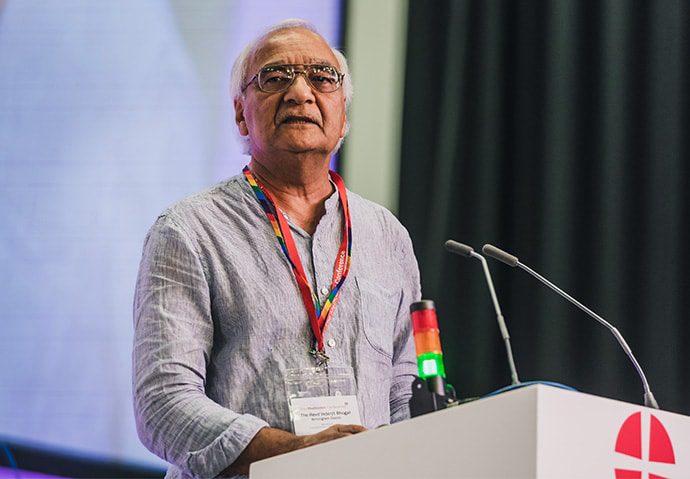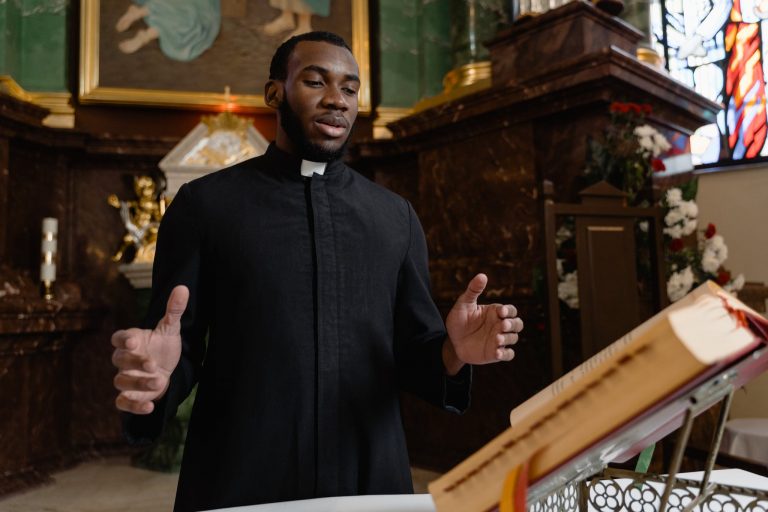Part of the Communion in Times of Coronavirus series of gentle reflections
Inderjit Bhogal, 2020
Click here for more
ACT JUSTLY
14 June 2020, third anniversary of Grenfell Tower fire
This article can be downloaded for use here
Today is the third anniversary of the Grenfell Tower. 72 people died in the devastating fire there.
The last fortnight has seen angry protests following the death of George Floyd in Minnesota. Most of the protests have been peaceful and I detest violence where it has featured.
It is important to listen to the calls for justice, and to ask what needs to happen.
Or, to put it another way, what does God require of us, not only in this situation, but at any time?
This question features in the Bible in a number of places with significant answers.
One place where the question is asked is in the book of Micah, chapter 6 verse 8 where we read:
“What does the Lord require of you but to act justice, love tenderly, and walk humbly with God”.
Six words are important there: act justly, love tenderly, walk humbly.
In any situation you have to make choices about how you will respond. The attitude you choose to live by is critical.
The words in Micah are worth pondering.
We can choose to live by those six words: act justly, love tenderly, walk humbly.
I will take these words in two’s to offer reflection.
So, first let us focus on the words “act justly”.
What justice means biblically is that everyone can enjoy the benefits of life. The “fulness of life” (john 10:10), for all without discrimination and deprivation. This is the persistent call of the prophets of ancient Israel.
In the words of the prophet Amos, God longs for the day when “justice (will) roll down like waters, and righteousness like an ever-flowing stream” (Amos 5:2).
Whenever men and women work in favour of justice, understood as simple fairness, and equality among people in things that enhance human dignity and well-being, they are standing on the “foundation stone” established by the God of justice.
This justice challenges the violence of poverty, racism, sexism, homophobia, and every form of domination, discrimination, oppression and war. Consequently, justice will not employ violence, and will address violence non-violently.
Commitment to justice includes working non-violently whether we are speaking of verbal violence or physical violence.
Ending particular forms of injustice is integral to the Kingdom of God, where all enjoy the fulness of life.
Justice is not about being right or righteous, but doing right and hungering after righteousness.
In Genesis 18: 17-19, justice and righteousness is linked, and mean the same thing, the “way” of God is revealed as “doing what is right and just”. This is what brings about the completion of the will of God. Fairness, equity, and impartiality in the rule of law, and sharing of the benefits of belonging together is what is held together here (Sacks, 2003).
For Moses justice is a good life. He says, “choose life” (Deuteronomy 30:19). Justice is the route to a good life.
When the biblical prophets spoke of justice they consistently held up the “widow”, the “orphan” and the “stranger” (Exodus 22: 21-27; Psalm 146: 7-9). These three groups of people represent those who had no means of their own to live a good life, and were dependent on the grace and generosity and goodness of others.
In our times these groups relate for me to older people in care, children in danger, and refugees.
Biblically, God is the God of justice (Deuteronomy 32: 4; Isaiah 30:18; Psalm 119: 137). It is God’s measuring line (Isaiah 28: 17). Justice exalts God (Isaiah 5:16). It is the worship God respects (Amos 5:22-24).
Act justly.
In all the debates of our times the cry is for justice, rooted in a 400 year history, and spanning Grenfell Tower, Minnesota, and Covid-19.
A cry for justice is the cry of God.
We are to hear the challenge of God to “act justly”.
LOVE MERCY
21 June 2020, Father’s Day, Summer Solstice Day
Good morning.
It is Father’s Day.
We give thanks for our fathers.
It is also summer solstice day, though it does not look or feel like it here in Sheffield. It is the longest day in the year.
Have a good day.
Last week I started a reflection on what I called the wisdom of six words to live by. The six words are from the book of the Prophet Micah in chapter 6 verse 8.
Act justly, love mercy, walk humbly.
Last week I reflected on what it is to act justly.
Today I will reflect on love mercy, and next week I will reflect on what it is to walk humbly.
So, love mercy. These words are sometimes written as “love tenderly”.
All people are inspired by and respond well to tenderness in the world.
Let’s look at the biblical meaning of mercy or tenderness, and to do this I want to recall something I learned from a woman called Marianne Katopo.
I met Marianne Katopo (Katopo, 1981) when she was studying in Birmingham, in 1980. Marianne describes herself as an Indonesian novelist, poet, journalist and theologian. She says she is a poet of God. I was privileged to discuss and engage in theological reflection with her forty years ago. Her theology was published in the book Compassionate and Free, An Asian Woman’s Theology. Marianne was one of the first Asian women theologians to teach me. She says God is compassionate and free and calls us to a compassionate and free life.
She taught me much about the meaning of compassion.
The Hebrew word for compassion is “rachamim”.
I recall Marianne saying she asked a professor at a theological school in Indonesia what “ra-cha-mim” meant originally.
The professor replied that the word literally means “movement of the womb” (rachamim). It could also mean movement in the womb. It literally refers to the “guts”, a deep feeling.
For Marianne, there is no deeper experience or more God-like experience than compassion. She says, compassion is intimacy, not distance.
The best description of mercy is that it is the tenderness a pregnant woman feels for the baby in her womb, especially when she feels a little movement of the baby in the womb.
It is father’s day but our theme has taken us to mothers.
It is significant that the mercy, tenderness, compassion, is derived from the most motherly organ in a human being, the womb. This is where the most intimate mother-child love and bond is most intimately formed or knitted. This is the root of compassion, tenderness and mercy. The tenderness, compassion and mercy of a mother for a child is deep. Women know this. Men need to learn this.
It is significant also that in English, Woman and Womb is connected.
Sometimes the bible speaks of Israel as the son of God, Ephraim.
Speaking of Ephraim, God says, “I am deeply moved for him; I will surely have mercy on him” (Jeremiah 31:20). The movement is deep within, in the womb of God. The resulting action is mercy.
There is a heart rending cry of a man pleading with Jesus: “Jesus, Son of David, have mercy on me” (Luke 18: 38).
On another occasion, mercy and compassion is the motivation for the action of Jesus faced with a crowd before him: “I have compassion for the crowd., because they have been with me now for three days and have nothing to eat” (Mark 8:2).
In Hebrew scriptures mercy is a gift of God to people. “I will give/grant you mercy” (Jeremiah 42:12).
Showing mercy is an emotion. Giving mercy is a choice.
Blessed are the merciful, they will be shown mercy” (Matthew 5:7).
The compassion of God has a touch of the feminine said Marianne (Katopo, 1981, page 66).
Mercy, tenderness, compassion.
I will leave you to reflect on how you show mercy, and how you can love mercy in your daily life.
Next week I will reflect on the words “walk humbly”.
It is lovely for us to keep connected like this on Sundays.
I will sit outside chapel with a lit candle on Wednesday morning at 11am, and hold you in my prayers.
Thank you and bless you.
WALK HUMBLY
28 June 2020
Welcome and good morning.
I’ve been looking at six words to live by, with reflections on what I called the wisdom of six words to live by. The six words are from the book of the Prophet Micah in chapter 6 verse 8.
Act justly, love mercy, walk humbly.
Last week I reflected on what it is to love mercy.
Today I will reflect on what it is to walk humbly.
I have found Holman Hunt’s painting entitled The Shadow of Death a good meditation on humility. His painting The Light of the World is better known. The Shadow of Death painting repays attention.
The painting shows Jesus Christ standing in his carpenter’s workshop, and is stretching himself. His mother is in the workshop too, and is shown watching the shadow he casts over a wooden rack, prefiguring his crucifixion on a cross.
The painting hangs in Leeds Art Gallery. It captured my attention, but I was drawn to it even more when I read the words beside the painting.
“He made himself of no reputation, and took upon him the form of a slave…and being found in fashion as a man, he humbled himself, and became obedient unto death, even death of the cross” (Philippians 2: 6-11, King James Version).
We have to be careful when we read words like “slave” here, whether it is used in the King James Version published in 1611, or the New Revised Standard version published in 1989.
The focus is on selfless service, not servitude, or being a doormat.
Humility is what I am focusing on.
Jesus’ humility is reflected in his manner and ministry. Born in a cave, crucified on a cross, he rode a donkey, he washed his disciples’ feet, he was let down by people close to him, and spurned by many rejected his message.
He made himself of no reputation.
Which other leader is there of whom we can say that?
The words “he humbled himself” are translated as he “emptied himself” in the NRSV.
Christ reveals and reflects God who is seen as one whose divinity embraces the human body with all its beauty, bruises and brokenness, and in the words of the Charles Wesley Hymn, “emptied of all but love”.
Justice, mercy and humility come together in the striking image of Christ on the cross.
Quite rightly the cross stands at the center of churches, reflecting the life that flows from letting go of power.
Christian thinking and theology is defined by Christ’s birth in obscurity and his humiliating death, not by rulers who live in palaces and rule by power.
This God calls us to work, walk, and share in this prophetic ministry of justice, mercy and humility, and to reflect and call for this model of leadership and life, in the hope that God will bring us to grow deeper and deeper into the image of God.
Humility acknowledges we cannot go far by ourselves. We need each other.
We are dependent on others.
We are stronger together.
In any congregation and community, this is where our strength lies, in each other.
It has been challenging to stay together in these difficult days of coronavirus.
These zoom gatherings have helped.
Chapel will remain closed till at least the first Sunday of September.
We will look at holding one or two events, within social distance, in the garden.
All documents on this topic are located here



